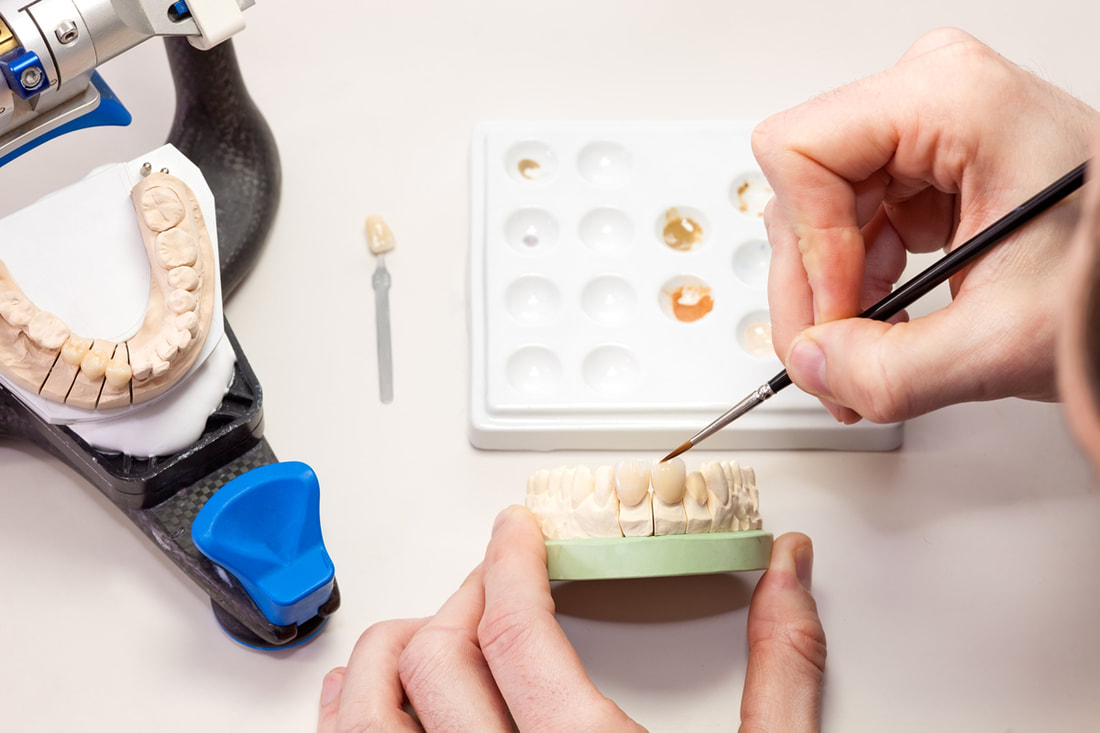Individually placed, or “solo,” implants replace a single tooth with a single implant. This is the simplest way to get a dental implant, and if you are missing only one tooth or a few widely spaced teeth, this is the only practical way to restore your lost teeth with implants.
Whether you get endosteal implants (that are placed inside small socket-holes made in the jawbone) or subperiosteal implants (that rest on top of the bone below the gums, they will both firmly fuse to the bone tissue as your mouth heals post-surgery.
A temporary crown will often be used over your new implant tooth. A permanent dental crown will ultimately cap the implant rod, however.
Placement Strategy Two: Implant Supported Bridges
In some cases where multiple teeth are missing, if those teeth are relatively nearby to each other, implant supported bridges may be the best answer.
Rather than install two, three, four, or more implants right next to each other in your jawbone, you may have three “teeth” anchored to two implants in a fixed bridge arrangement. This is slightly less expensive up front but now they are connected and damage to one crown will require a new bridge. Ask your periodontist which choice is best for you.
Implants and natural healthy teeth will both help preserve the underlying bone by stimulating natural bone health.
Placement Strategy Three: Implant Supported Dentures
Upper jaw, lower jaw, or full mouth implants are also widely used by those missing all or most of their teeth. This situation will generally call for an implant supported denture, which would rest on at least 4 dental implants rooted in either jaw.
It is possible to have all four implants installed in one sitting at your periodontist office. This treatment requires extra care and often a dental laboratory technician and the surgeon and restorative dentist will consult prior to your working visit to plan the best esthetics and function and comfort for you, the patient.
The dentures will be permanent and attach firmly to the implants below/above them. They will last for many years, often for a lifetime with minimal home care and periodic professional supervision.
You will avoid the discomfort of removable dentures, prevent excessive bone and gum loss, avoid slippage while chewing/talking, and not have to keep going back to get new dentures made every few years. In the long run, implant-supported dentures are more comfortable and functional than removable dentures.
To learn more about dental implants, or to schedule a periodontal appointment, contact Dr. Raymond A. Kenzik in Ormond Beach, FL, today!
